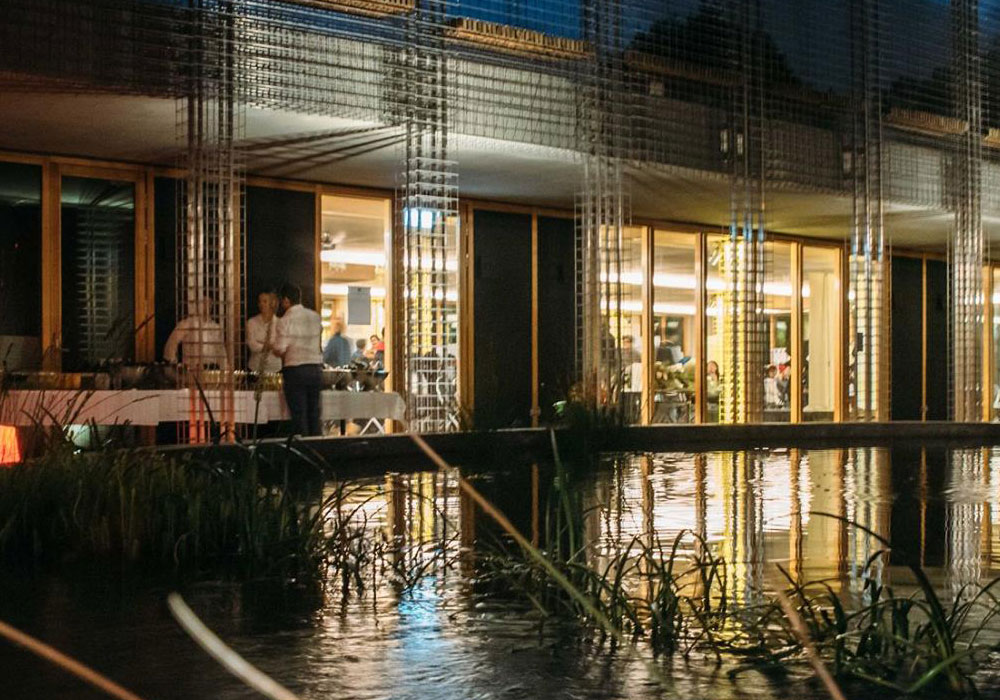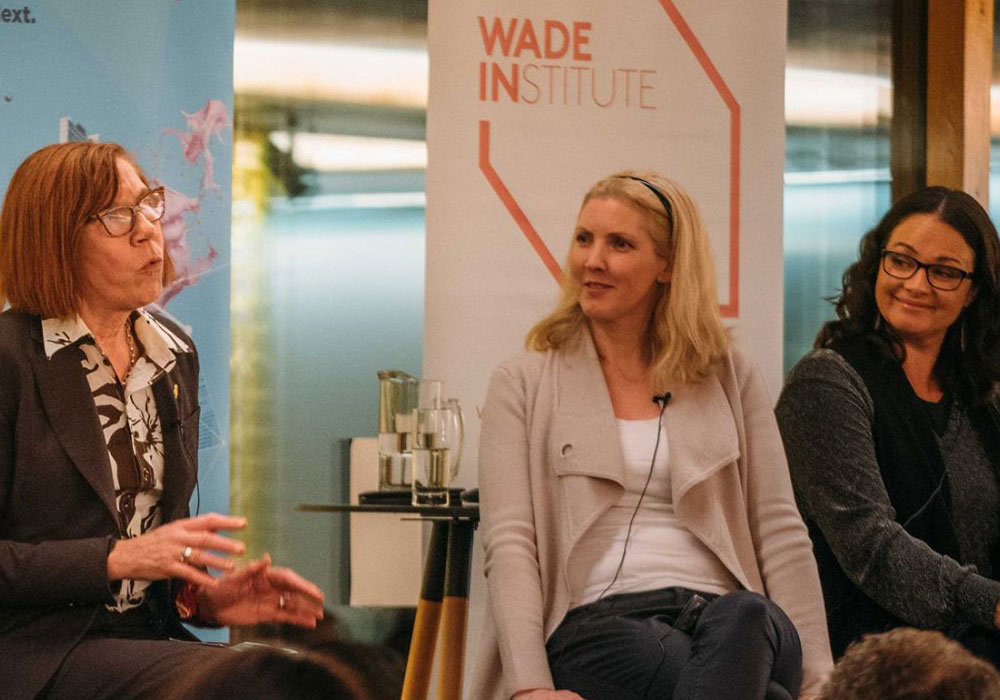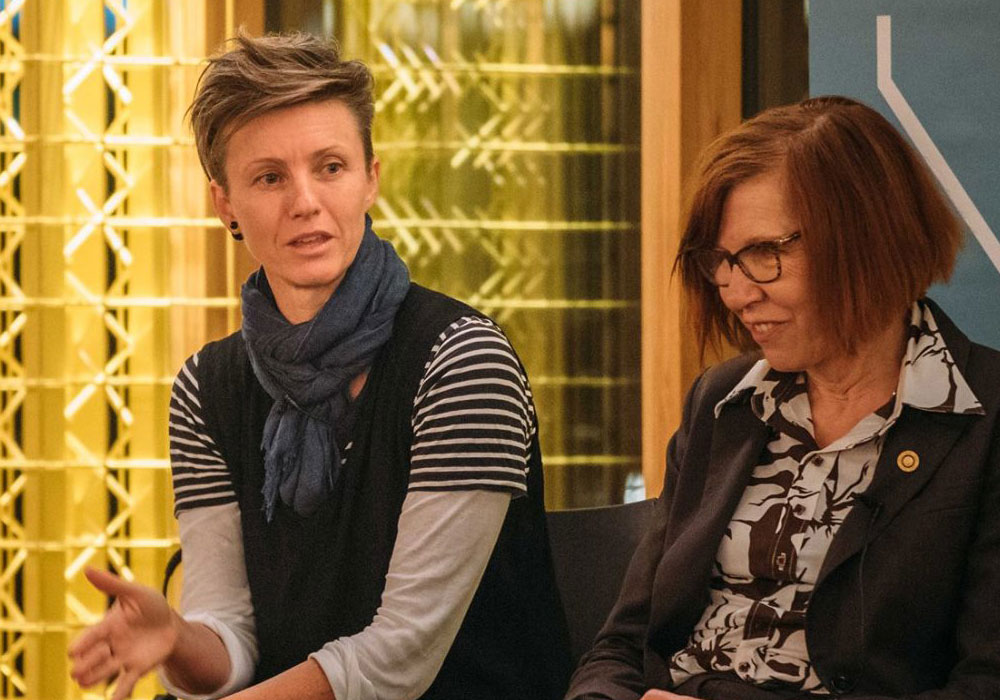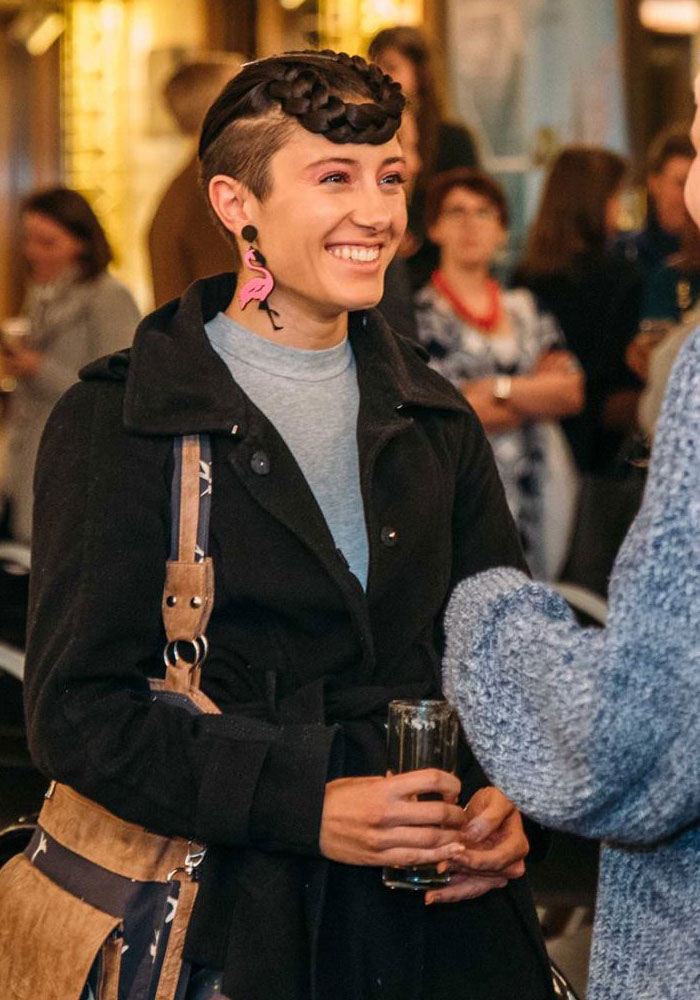Women entrepreneurs changing the world
By Victoria George
Passion and resilience were the resounding themes at a panel and networking event about women entrepreneurs at the Wade Institute Centre at the University of Melbourne.
As part of Melbourne Knowledge Week, ‘Women Changing the World’ brought together three engaging panelists from very different backgrounds to the Wade Institute.
Councillor Jackie Watts gave a fitting opening address, highlighting the importance of Indigenous knowledge and Indigenous women. She also addressed an unsettling figure she’s just discovered – that 90 per cent of Wikipedia entries are about men.
“You ladies need to start contributing!” was her call to the room, full of women of all ages, who laughed and nodded in agreement.

Madeleine Grummet, founder and CEO of Do Re Me Creative, herself a “serial entrepreneur” and graduate of the University of Melbourne’s Master of Entrepreneurship, led the fascinating discussion on women entrepreneurs and business.
First she welcomed Bec Scott, Founder and CEO of Streat - a social enterprise tackling youth homelessness and disadvantage with eight businesses, including five cafes, located across Melbourne.
Second to the stage was Dr Elaine Saunders – a leader in the development of new technologies for cochlear implants and hearing aids. A pioneer in hearing research for more than 40 years, Saunders is the co-founder and CEO of Blamey Saunders hears, a hearing aid and telehealth company.
Finally Grummet welcomed Charlotte Petris, Founder and Vice President of Timelio, a FinTech company which supports small to medium sized businesses to get up and running with quick access to capital.
Grummet began by asking the women how they got started in their careers, with Scott the first to announce “I am so unqualified in what I do!”
Trained as a plant biologist, she spent 10 years working at the CSIRO before diving into the world of social entrepreneurship by way of a two year stint with a social enterprise in Hanoi, Vietnam. From that experience, her and partner Kate were inspired to start Streat in 2010.
Although her background is not in business, Scott said her key entrepreneurial skill is that she is “good at getting diverse people together”.
Saunders was inspired to enter the world of hearing technology as her father was deaf. “I was keen to try and make hearing devices more accessible to people,” she said.
“Lots of people today still don’t’ have access to hearing aids, and that’s what I want to change.”
Petris, originally from New Zealand, spent 10 years working at a major bank in London, before moving to Melbourne – an entirely new city – with the objective of starting her own FinTech business.

Asked what the panellists remembered as the low-points they learnt the most from in their careers, Scott said:
There would be at least six near-death moments. I never know how I’m going to pay everyone’s salaries. You’ve got to find a way to survive. Bec Scott
Saunders added that she’s probably had lots of ‘stuff-ups’ but that she’s managed to wipe most of them from her memory: “There is no such thing as an excuse. You’ve got to have a solution.”
When asked about the hurdles faced specifically because they are women, all three panellists were keen to point out the advantages and strengths of being female entrepreneurs.
“Being women, we’re very good at running companies,” said Saunders. “We actually do a very, very good job. I don’t think (being a woman) has been a barrier to me.”
Scott remembered during her time at the CSIRO, where she was a junior young female in an environment dominated by older men.

“Even though I had virtually no strong female role models, I still did well,” she said. “Women are very good at collaborating, we tend to keep making the circle bigger and allow different voices to come to the table.”
Petris said there’s no denying that running a business and a family simultaneously is a juggling act, but you just get through it.
“Every day is a struggle. I also work with my husband in the business so we share everything and juggle everything," she said.
You’re always feeling guilty as a parent. There is no secret toolkit; it’s just getting through each day. Charlotte Petris
Asked what their top piece of advice was to women as they step into the world of entrepreneurship, Scott said “look around at what people are already doing.”
Before launching Streat, she looked at those people around her she admired. “I wrote them love letters,” she said.
“I told them ‘I love what you do!’ and asked if they could spare half an hour of their time.” From those initial coffee meetings, Scott learnt a lot and met people who became investors and mentors.
“Find those people you really admire. I worked in Hanoi for a few years and learnt a lot there. If you can, volunteer and intern.”
Saunders said being realistic about your finances was key, along with having “persistence and passion for what you do”.
Petris agreed: “You need that passion to go through all those hurdles.”
Have no Plan B. If people start saying you’re crazy, then you’re doing the right thing!
Scott acknowledged the additional challenge of working in the social sector: “Keeping raw to the issue is important. You need to have good coping mechanisms working in the sector I’m in. We’re fueled by caffeine and hope basically.”

One audience members asked the panellist what were their most transferable skills that have helped in their endeavours.
Scott said “the key thing I was doing was trying to solve complex problems with diverse people around the table.”Saunders added “I see solutions in things”, while Petris said her driver has always been her desire to “continually want to learn”.
“It’s resilience,” she added. “It’s about how many times can you get hit and get back up?”
Find out more about the Master of Entrepreneurship and look out for upcoming inspiring network events held by the Wade Institute.